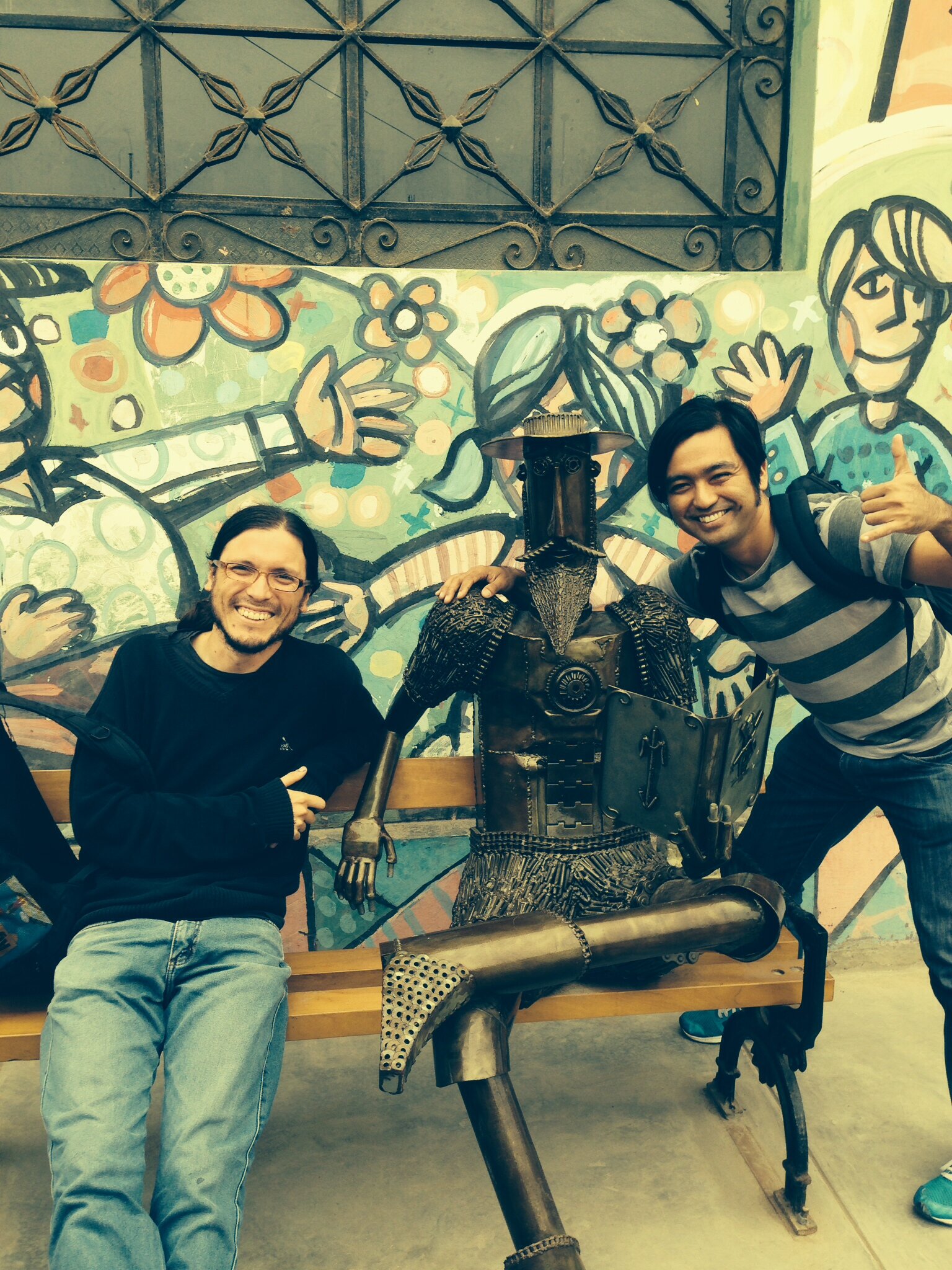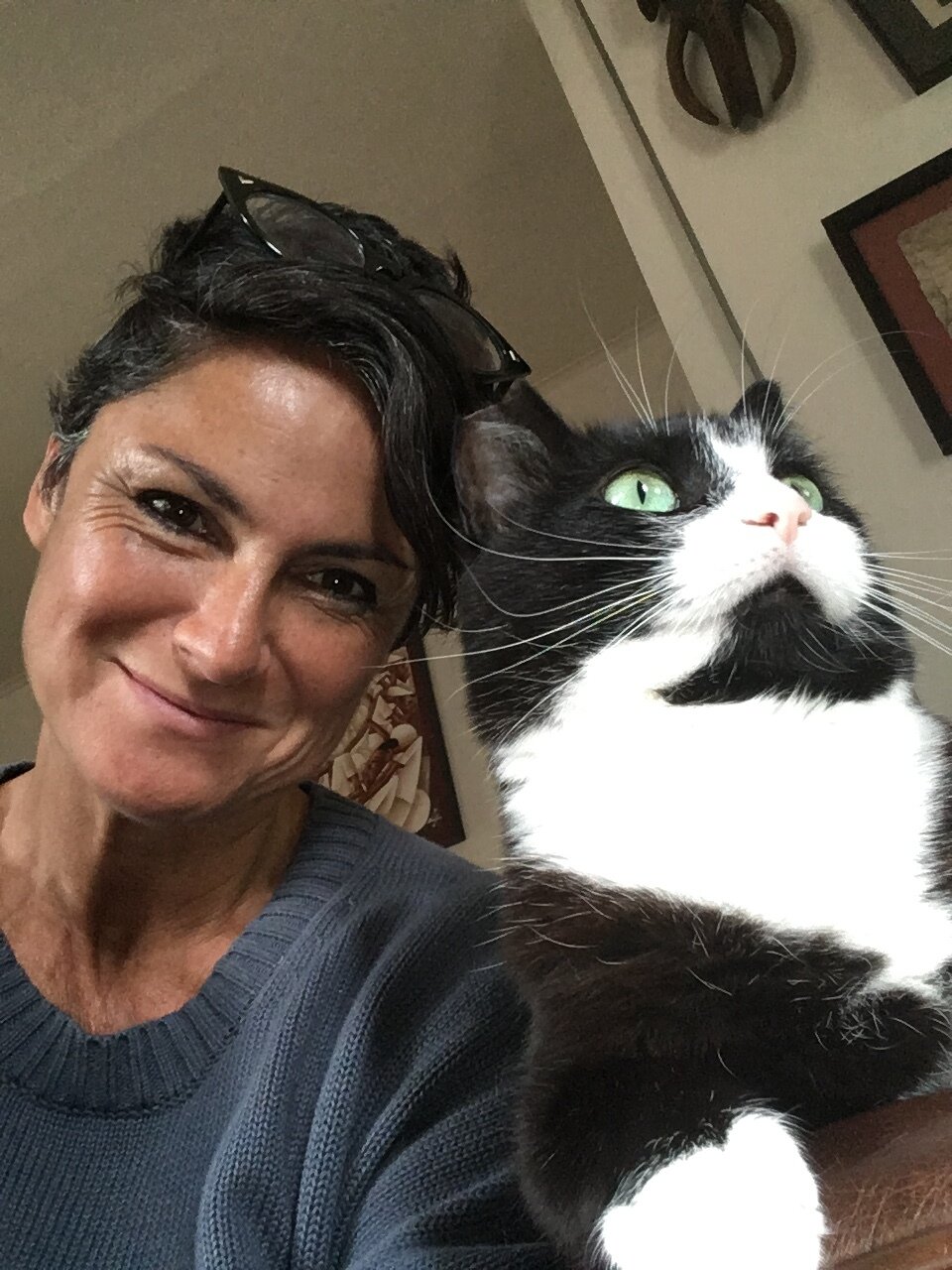
Collaborations

Horizons of Harm and Repair: The Stories of Manzanar, Diverted
This project supports a range of activities around the screening of “Manzanar, Diverted: When Water Becomes Dust,” a film by Japanese American director Ann Kaneko. The film is about the Manzanar concentration camp in California and the dispossession of the Nüümü (Paiute) and News (Shoshone) lands called Payahüünadü, the place where the water always flows. Inspired by this layered understanding of history, this project provides a collaborative exploration of the horizons of harm in solidarity with the histories of Manzanar/Payahüünadü.
Film screening and panels are scheduled for January 26-27, 2023. For times, locations, and how to attend, click here and scroll down.

Art and Political Activism: A Conversation from Peru
Registration required: https://washington.zoom.us/webinar/register/WN_soN1KR_ZTzGwYoY822DlvQ
Visual artists Jorge Miyagui and Mauricio Delgado, and visual anthropologist Karen Bernedo Morales, will share their experiences in executing award-winning public art interventions that include Art for Memory (Asociación Cultural Museo Itinerante Arte por la Memoria) and the Muralist Brigade (La Brigada Muralista). They will help us understand the role that art has played in moments of political instability, mass protest, and COVID. Discussing recent events in Peru, they will also describe how a visual internationalism informs their political activism and creative work.
The artists are co-founders of the collective art project Museo Itinerante Arte por la Memoria which received the National Human Rights Award in 2012 and the Prince Claus Award in 2014.
Karen Bernedo Morales is an award-winning curator, documentary filmmaker and visual anthropologist trained at the Pontificia Universidad Católica del Perú. She teaches visual arts at la Universidad Científica del Sur. She is also the curator of various projects including the "Museo Virtual de Arte y Violencia Política," the video project "Poéticas Visuales de la Resistencia," the exhibit “#EmancipadasyEmancipadoras,” and the public art workshops "Jornadas de Arte." With Miyagui and Delgado, she formed part of the collective art project that received the National Human Rights Award in 2012 and the Prince Claus Award in 2014.
Mauricio Delgado is an award-winning visual and performance artist, trained at the Institute of Visual Arts Edith Sachs. His work has been showcased internationally in Cuba, El Salvador, the United States and throughout Peru. He is active in public, collaborative and multi-media artistic production. His well-reviewed individual exhibit, “Between Flowers and Misfortunes”, like much of his work, engages the themes of memory, rights, and violence. He was also involved in the collaborative project, “Peruvian Art after the Truth and Reconciliation Commission.”
Jorge Miyagui is a celebrated visual artist, trained at the Pontificia Universidad Católica del Perú. His work has been the subject of solo exhibitions in Helsinki, Finland and various cities in Peru, and has been included in various collective exhibitions in Argentina, Chile, Venezuela, Germany, Spain, the United States. His work in countercultural projects, alternative cultural organizations, and public artistic interventions has been featured in various publications in Perú, Argentina, Holland, and Finland. He has also been a featured speaker at many academic conferences and events in Peru and internationally. He has been a member of the Aguaitones Collective (1998-2001) and the Forum for Cultural Solidarity (2004-2009). Currently he is involved in the following collective projects: the Muralist Brigade, the Averno, and the Traveling Museum: Art for Memory (Museo Itinerante Arte por la Memoria).
Part of Art at the Borders of the Political. Across the Americas, visual artists reveal the limitations of official state- authorized “truth and reconciliation” projects and the importance of including everyday people in the work of memory and protest. Through a series of film screenings, public talks and exhibitions, micro-seminars and participatory pop-up installations, this project showcases the power of art and sensory scholarship to move beyond the tropes of victimhood or heroic resistance and reveal democratic energies.
Sponsored by the Simpson Center for the Humanities. Co-sponsored by Comparative History of Ideas, African Studies, Latin American and Caribbean Studies, Jackson School of International Studies, School of Art + Art History + Design, School of Drama, Geography, and Photo/Media.

Filming Ethnographic Textures: Representing the Atmospheric Politics of Peruvian Cultural Practices
Patricia Alvarez Astacio will discuss and screen her short films El Señor de los Milagros and Entretejido.
Registration required: https://washington.zoom.us/meeting/register/tJAuf-mspzorGt2HPaDz-yQosU1htiJws-CV
El Señor de los Milagros (9min). Directed by Patricia Alvarez Astacio and Christopher Newman
Lord of Miracles is an observational portrait of the annual procession of ‘El Señor de los Milagros’ in Lima, Peru. This film attempts to embed the viewer amidst the procession in an effort to illustrate the unique ways religious devotion is manifested in one of Peru’s most important religious procession.
Entretejido (32min). Directed by Patricia Alvarez Astacio
Entretejido is a sensorial immersion into the textures that compose the Peruvian alpaca supply chain of alpaca fashions, from animal to runway. It is a film about the creation, depth and tension of surfaces.
Patricia Alvarez Astacio (Brandeis University) is an anthropologist and filmmaker whose scholarly research and creative practice develops in the folds between ethnography, critical theory, sensory ethnography, and the documentary arts. Her most recent works converge on issues of gender and ethnic representations in neoliberal, post-authoritarian Peru. She is currently working on her book manuscript Moral Fibers: Making Fashion Ethical, and she is the co-editor of the Multimodal section of American Anthropologist. Her film Entretejido (2019) premiered at the Havana International Film Festival.
Part of Art at the Borders of the Political. Across the Americas, visual artists reveal the limitations of official state- authorized “truth and reconciliation” projects and the importance of including everyday people in the work of memory and protest. Through a series of film screenings, public talks and exhibitions, micro-seminars and participatory pop-up installations, this project showcases the power of art and sensory scholarship to move beyond the tropes of victimhood or heroic resistance and reveal democratic energies.
Sponsored by the Simpson Center for the Humanities. Co-sponsored by Comparative History of Ideas, Latin American and Caribbean Studies, and Jackson School of International Studies at the University of Washington.

Art at the Borders of the Political: Mobilizing Senses Across the Americas
Across the Americas, visual artists reveal the limitations of official state-authorized “truth and reconciliation” projects and the importance of including everyday people in the work of memory and protest. Through a series of film screenings, public talks and exhibitions, micro-seminars and participatory pop-up installations, this project showcases the power of art and sensory scholarship to move beyond the tropes of victimhood or heroic resistance and reveal democratic energies.
The first event in this multi-year series will take place in October 2020. More information TBD.
Supported by the Simpson Center for the Humanities.

Articulating Animal Studies: Thinking Humans and Animals Together
This graduate seminar was developed in collaboration with my colleague Louisa Mackenzie and with support from the Simpson Center for the Humanities in the form of a Summer Fellowship for New Graduate Seminars in the Humanities and a Collaboration Studio Grant.

Seattle Arts & Lectures: Thinking Animals series
Animals occupy a paradoxical place in the world: they are everywhere, yet hidden. This Seattle Arts & Lectures course, hosted at the Henry, explores the histories, politics, and cultural dynamics of how humans see and do not see animals in the world. Bringing expertise from wildlife sciences, animal welfare, geography, anthropology, literature, and political science, a distinguished set of speakers will explore human/animal connections in a range of global and historical contexts, including Renaissance France, contemporary Peru, and urban and rural spaces in the United States. More information and full schedule at lectures.org.